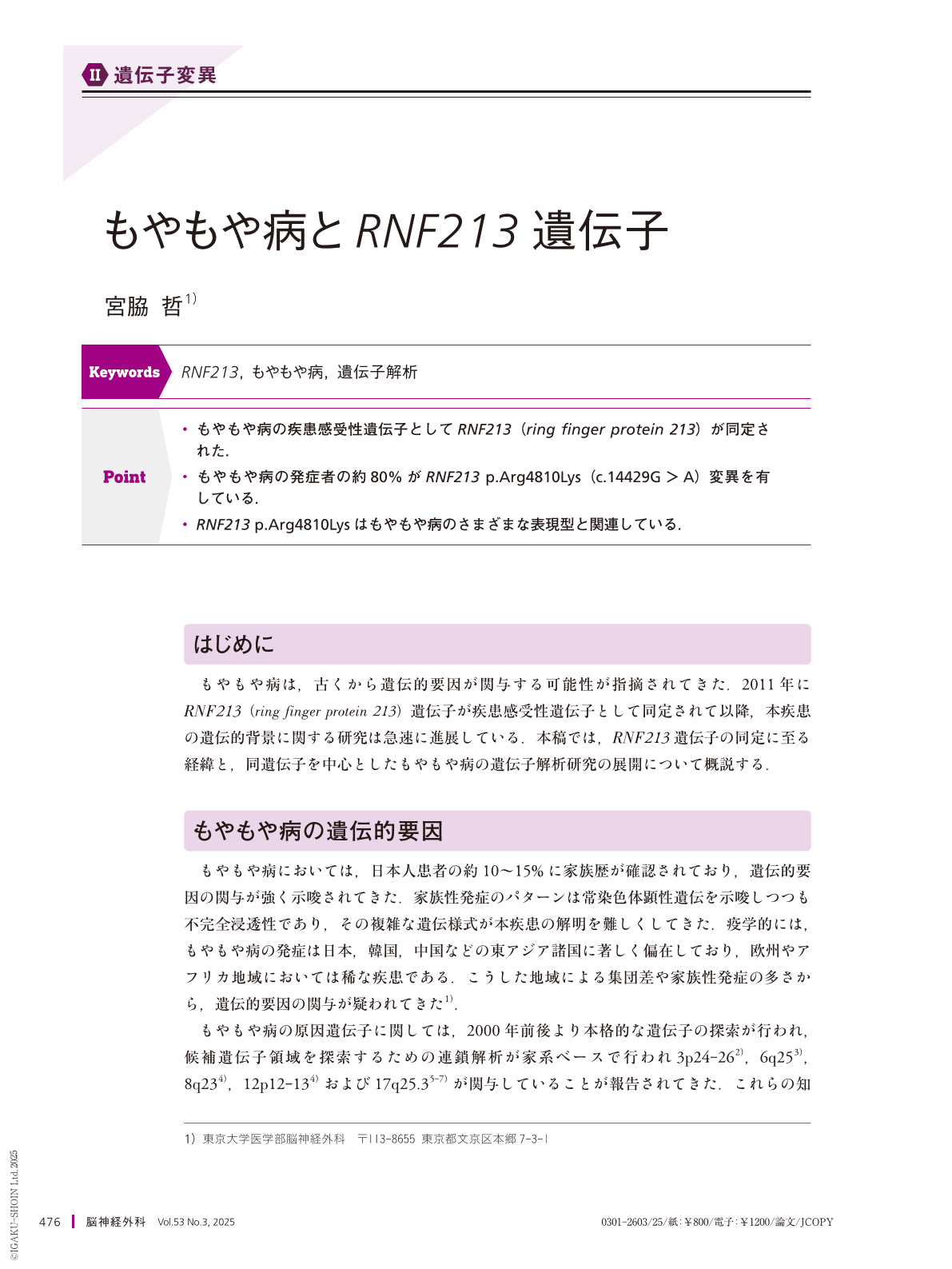Japanese
English
- 有料閲覧
- Abstract 文献概要
- 1ページ目 Look Inside
- 参考文献 Reference
Point
・もやもや病の疾患感受性遺伝子としてRNF213(ing finger protein 213)が同定された.
・もやもや病の発症者の約80%がRNF213 p.Arg4810Lys(c.14429G > A)変異を有している.
・RNF213 p.Arg4810Lysはもやもや病のさまざまな表現型と関連している.
Genetic research on moyamoya disease(MMD) has advanced significantly following the identification of RNF213 as a susceptibility gene. Approximately 80% of Japanese patients with MMD harbor the RNF213 p.Arg4810Lys variant, which has been increasingly linked to variations in clinical phenotypes, including disease progression, mode of onset, and postoperative outcomes. Of note, this variant is also associated with intracranial arterial stenosis that does not meet the diagnostic criteria for MMD, as well as with systemic vascular conditions such as non-cardioembolic ischemic stroke, coronary artery disease, and pulmonary hypertension.
Despite its strong association with the disease, the p.Arg4810Lys variant is present in approximately 2% of the general population, suggesting incomplete penetrance and the involvement of additional pathogenic factors. In parallel, researchers have examined the clinical relevance of RNF213 variants other than p.Arg4810Lys and have identified rare mutations that may contribute to disease severity. Moreover, large-scale genetic analyses have identified additional susceptibility genes, such as DIAPH1 and ANO1, whose roles in MMD pathogenesis remain under investigation.
Although substantial advances have been made in elucidating the genetic architecture of MMD, the precise mechanisms underlying disease onset remain elusive and represent an important area of ongoing research.

Copyright © 2025, Igaku-Shoin Ltd. All rights reserved.


